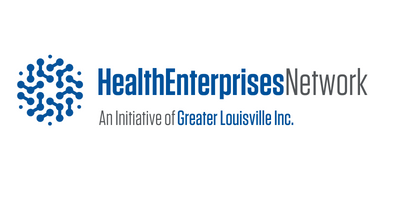Physicians advocate for access to care, liability protections, public health
By Dale Toney, MD
The COVID-19 pandemic has certainly changed how many things are conducted, and the 2021 Kentucky General Assembly is no exception. While the legislative session may look different this year, the advocacy of the Kentucky Medical Association (KMA) will remain steadfast as the Association continues to work to protect the practice of medicine and the quality of care for patients.
The 2021 Regular Session of the Kentucky General Assembly began Tuesday, January 5. Being an odd-numbered year, the state constitution mandates that lawmakers only meet for thirty legislative days. Legislators must adjourn on or before Tuesday, March 30.
Despite the limited timeframe, legislators have a full agenda as they will address several contentious issues, including a one-year budget, scope of executive powers and criminal justice reform. However, given their importance and timeliness, KMA expects that several of its 2021 priority issues, which include access to care, liability protections and public health, will be considered.
Access to Care
Telehealth: Federal and state government relaxed many restrictive telehealth rules (such as prohibition against audio-only care) and expanded telehealth coverage (such as additional E/M services) in response to COVID-19. KMA, in addition to other stakeholders, will advocate that certain changes become permanent.
Mental Health Parity: Mental health and addiction care should be no more restrictive than insurance coverage for any other medical condition. Insurers often design and apply managed care techniques in more restrictive ways for mental health and addiction treatment. Legislation is necessary to require insurers to demonstrate compliance with federal law in terms of how they design and apply their managed care practices.
Co-pay Accumulator: Insurance companies are refusing to count co-pay assistance program payments toward patients’ deductibles and out-of-pocket maximums through a practice known as “co-pay accumulator adjustments.” This often results in quite a shock at the pharmacy counter when Kentuckians realize they are being forced to pay thousands of dollars out-of-pocket just to get the care they need when they thought their deductible or out-of-pocket maximum had been met. Legislation is needed that would prohibit payers from enacting co-pay accumulator policies that do not count third-party financial assistance (e.g., co-pay cards) toward a patient’s out-of-pocket expenses.
Liability Protections
Coronavirus-related lawsuits are already being filed across the country, and healthcare providers need protection from such actions. The 2020 Senate Bill 150, which was enacted during the final hours of last session, did not go far enough. That legislation, while well-intended, only provides a defense, not immunity, against claims for providers who in good faith render care or treatment of a COVID-19 patient during the state of emergency. Stronger legislation is needed that grants immunity for healthcare providers who deliver coronavirus-related care.
Public Health
Prior Authorization (PA) for Medication-Assisted Treatment (MAT): PA for MAT services is a complex cost-control mechanism used by health insurers that requires patients to await approval before gaining access to a drug, which can take days or weeks. Such delays put patients at serious risk for relapse, overdose or even death. KMA will advocate for legislation that would remove prior authorization requirements for FDA-approved medications used to treat opioid use disorder.
Deceptive Advertising: Drug-injury advertisements on television, radio and social media have increased by more than 60 percent since 2008, putting patients’ lives at risk across the U.S. Driven by law firms and aggregators, these commercials feature sensationalized claims that go unchecked due to a lack of proper oversight, leading patients who take critically important medications to doubt or discontinue their treatment regimen without consulting their physician. KMA supported this in the 2019 and 2020 sessions and will once again advocate for legislation that would regulate such drug injury advertisements.
Tobacco Local Control: Every year in Kentucky, smoking directly causes 8,900 deaths and leads to more than $1.9 billion in healthcare costs, nearly $600 million of which comes from the state Medicaid program. Previous efforts to convince the state legislature to pass statewide tobacco-free laws have been unsuccessful. Stakeholders, in response, have begun advocating for local governments to take a greater role in enacting tobacco-free policies. Unfortunately, local control of certain tobacco policies is prohibited by state law. Legislation is needed to give county and city governments control to regulate the use, display, sale, and distribution of tobacco products, including e-cigarettes.
Tobacco Prevention & Cessation Funding: Comprehensive state tobacco prevention and cessation programs that reduce youth and adult tobacco use are highly cost effective. Such programs require sufficient capacity through adequate funding. Since the General Assembly will be attempting to craft a one-year budget during the 2021 session, KMA will support raising the level of funding for these programs to the 2020 level ($3.3 million) for fiscal year 2022. The program is currently funded at only $2 million for fiscal year 2021.
KMA Virtual Advocacy in Action Month
While in-person visits to the State Capitol will be limited this year due to the COVID-19 pandemic, KMA physician advocacy will continue through the Association’s first Virtual Advocacy in Action Month, held during the month of February 2021. Physicians will be encouraged to engage virtually with their legislators to promote KMA priority issues.
There were several ways members could participate, including a virtual member briefing that covered the Association’s legislative priorities for the session in early February. Members were also encouraged to reach out to their legislators each Tuesday during the month as part of the initiative’s “Talk Tuesdays” events, as well as to contribute to the Kentucky Physicians Political Action Committee (KPPAC) during “KPPACtion Day.” More information, as well as registration, for Advocacy in Action Month is available at kyma.org/AIAMonth.

Recent Comments